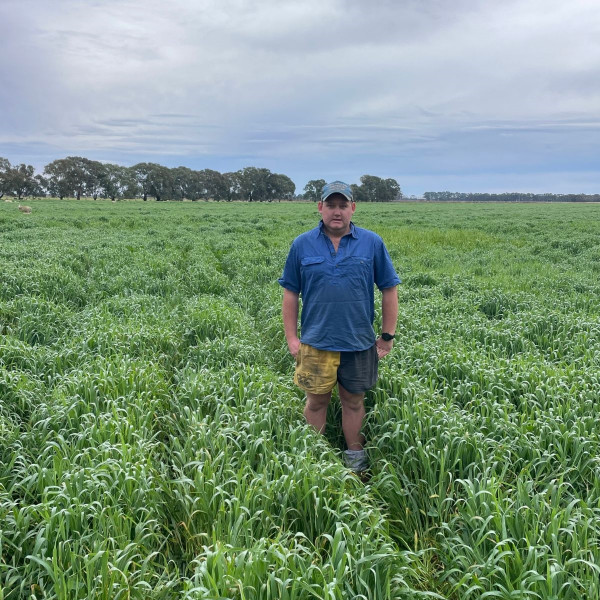BIRCHIP Cropping Group has catapulted onto the national stage as a co-ordinator of the National Variety Trials.
BCG is this year in charge of 176 trial sites across Victoria in parallel with its own extensive agronomic research.
All are designed to deliver cutting-edge research and guidance to its membership base and this work will be a major feature in the June issue of North West Farmer, which will be in The Guardian next Friday.
Members such as Barraport’s Angus Potter, a fourth-generation farmer working the family’s holding about 15km north of Boort, went into the family business after completing a Certificate III in Agriculture and an Advanced Diploma of Agribusiness Management, initially combining his studies at Longerenong with work on a neighbouring property.
“I started that job while completing my Cert III in agriculture, but during that time I realised studying full-time at Longerenong College was what I really wanted to do,” Mr Potter said.
“I completed a two-year course at Longerenong College last November and came straight back to the family farm.
“The property is a mixed enterprise, covering 1400ha, where we run approximately 2500 sheep. One thousand hectares is dry and the balance has flood irrigation, and we primarily grow wheat, barley, and vetch in rotation on the dry land.
“With the irrigation, we grow clovers and cereals, and this year we are looking to incorporate lucerne, mainly for sheep consumption, with some paddocks grown for grain harvesting.”
Mr Potter runs the farm with parents Adam and Kim and said he and his father in particular worked well together.
“Dad and I have a great relationship and collaborate well, bouncing ideas off each other to achieve the best results.
“We started sowing our grazing canola on the irrigated land back in March, with the rest of that land planted to Planet barley and clover mixes, straight clovers and Kittyhawk wheat.
“On the dry land, we began sowing vetch in late April, followed by Planet barley, oats, Catapult wheat, and Maximus barley late last month.”
Like most farms, the Potters got a good Christmas-new year rain and were lucky enough to get a good follow-up after sowing – that’s 138mm to date.
And it could not have come at a better time as Mr Potter reports “everything is up and out of the ground”.
The family’s use of a variety of different cereal strains is a classic example of why BCG has become so closely involved in the current combination of its own trials and the NVT program.
Group chief executive Fiona Best said with the continuous advances in areas such as gene technology, breeding programs were working hard to ensure desirable traits were being developed in new lines.
“For BCG, seeing how these traits are expressed in local trials is exciting and we are pleased to be part of the process in delivering independent results to farmers through the GRDC NVT program,” she said.
“We have sown a total of 176 trials across 50 sites spread across the Wimmera, Mallee and North Central regions, meaning we can deliver locally relevant information to more growers – and that’s crucial for them.
“It’s important we can continue to rigorously assess the latest varieties in the environments in which our farmers are wanting to grow them.
“Ultimately, the research BCG conducts ensures farmers have access to locally derived information to support their decision making and improve profitability.”
Mr Potter said he and his family were always looking to move forward with technology and “not get left behind with all the new stuff that is around”.
“I’m also doing more detailed planning to make sure we have a good work-life balance and not just work all the time, so we’re only working long days and weekends when we have to.
“For example, drought is a constant concern, and we need to be prepared at all times.
“Our plan is to have both cropping and sheep enterprises so we can still make money from the sheep during dry periods in the cropping.
“However, we must remember the sheep need to be fed so to prepare for potential dry spells, we store plenty of hay and ensure we have more grain than we need to feed the sheep if it becomes dry.”
DON’T MISS THE BCG FEATURE NEXT WEEK
















